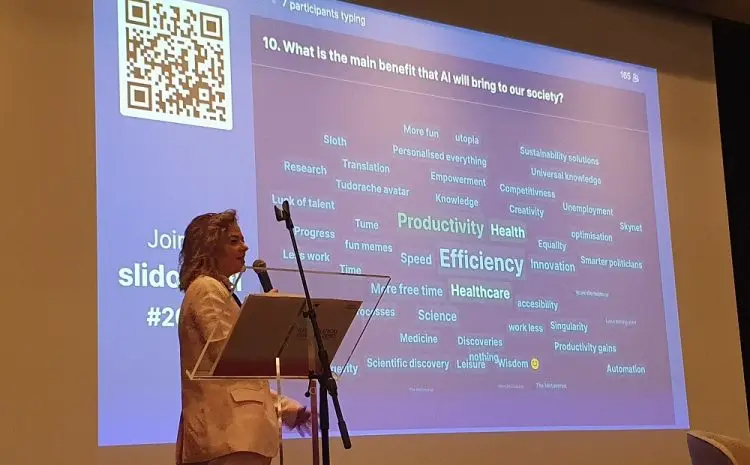Geopolitical Europe 2030 highlights opportunities and risks of AI

The Geopolitical Europe 2030 conference brought together diverse stakeholders from government, academia, industry and civil society to discuss the transformative potential of artificial intelligence (AI). Participants highlighted the need for responsible innovation, effective regulation, fair competition, and international cooperation to harness AI’s potential for societal benefit while mitigating risks.
As AI comes into everyday usage, the technology industry has a bigger than ever responsibility toward society, said conference host Dragos Tudorache, Member of the European Parliament. “They can’t just innovate without thinking about it.”
Roberto Viola, Director General of DG-CONNECT at the European Commission said: “The goal should be that AI becomes a global good for the world. We almost succeeded in this with the internet, with some limitations. It’s an opportunity – if we focus on the convergence of competition, safety and utility, it will work.”
Elizabeth Kelly, Director of the US AI Safety Institute, emphasised the pivotal role of trust in unleashing the benefits of innovation.
Congressman Nathaniel Moran highlighted the opportunities of AI. “We’re trying to provide a basis for scaling up AI rather than regulate it,” he said, pointing out that the Biden administration, and most Americans, believe existing laws can regulate AI.
In an interactive session, “overregulation” and “deepfakes” were the main concerns highlighted in relation to the future development of AI.
Exponential Improvement
Nicklas Lundblad, Director of Public Policy at DeepMind, stressed the profound impact of AI on scientific research, predicting that AI’s acceleration of learning could drive progress, productivity, and economic growth. Highlighting Europe’s wealth of data, he posited the region as a potential leader in AI development.
Jack Clark, co-founder of Anthropic, noted AI’s nascent ability to propose scientific experiments and write entire software programs. He emphasised the exponential improvement of AI systems and their potential to enhance job performance.
Ben Cistecky, Director of Investment (AI) at Temasek identified chatbots, healthcare and transport as growth areas. Jeff Alstott, founding Director of the Center for Technology and Security at RAND, highlighted AI coding and digital tutors as burgeoning sectors.
Oliver Ilott, Director of the UK AI Safety Institute, highlighted the challenges posed by AI’s exponential growth and the need to anticipate risks, particularly in open-source models.
Professor Nick Bostrom from Oxford University warned about the existential risks posed by AI but acknowledged its potential benefits in shielding against other risks.
In the interactive session, efficiency and productivity were seen as the main benefits that AI will bring to society, with the healthcare sector highlighted. Delegates identified AI, technology and innovation as top financial investment areas in the next five years, alongside defence and climate.
Competition and Fairness
The European Commission’s Executive Vice-President Margrethe Vestager, Europe Fit for the Digital Age and Commissioner for Competition, discussed the aims of the Digital Markets Act (DMA) to create open and contestable markets. “Trust and fairness is what creates markets,” she said.
She highlighted the European Commission’s commitment to enforcing the DMA, pointing to the recent case against Google . “The zeitgeist has changed”, she said, with governments now more open to challenging big technology companies.
International Coordination and Interoperability
Executive Vice President Vestager also emphasised the need for close cooperation between competition authorities and AI institutes, highlighting the improved transatlantic relationship.
Congressman Nathaniel Moran advocated for interoperable AI legislation worldwide, with the potential for US legislation to “pair up with” the EU’s AI Act.
AI governance officials Viola, Kelly, Ilott all emphasised the necessity of interoperable standards and cooperation between national AI institutes.
Zoe Baird from the US Department of Commerce emphasised the Biden administration’s commitment to inclusive policy development, stressing the importance of trust in US companies and developers.
Moving forward, concerted efforts by stakeholders across sectors and jurisdictions will be essential to shape a future where AI serves humanity’s best interests.




